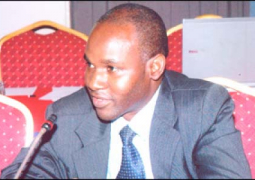
Lamin
Jawara, the permanent secretary at the Personnel Management Office (PMO) has
said there is no systematic gender-based discrimination in recruitment,
promotion and training among others.
Mr.
Jawara made these remarks during a consultative meeting on the Draft Women’s
Amendment of Discriminatory Bill, 2019, before the select Committee on Health,
Women, Children, Disaster, Humanitarian Relief and Refugees at the National
Assembly.
“In
fact most of the sectors in the civil service have surpassed the percentage
recommended in the proposal. The teaching cadre is composed of 34% female in
aggregate, while the figure for the nursing cadre stands at 64% female and for
accounting cadre, it is at 46% female. The figure for immigration stands at 39%
female,” he said.
PS
Jawara added that recruitment and promotion into every cadre in the civil
service is guided by the relevant schemes of service applicable to that cadre,
adding that the scheme outlines the specification for entry as well as career
progression in the cadre.
According
to him, the analysis indicates that where women are qualified, they even stand
to surpass the men in terms of percentage employment rate, meaning there is no
need to legislate for “affirmative action” for women in this country. “However,
what is needed is to encourage them to take interest in areas where their
participation still leaves much to be desired,” he added.
Lala
Jaiteh, the deputy permanent secretary at the Ministry of Women Children and
Social Welfare, stated that the principal focus was to repeal discriminatory
laws that directly and indirectly impact women and girls; repeal laws that
undermine equal pay recognition of unpaid care work, protection of domestic
workers, parental leave and freedom of choice of employment and eliminate
harmful and discriminatory minimum age of marriage provisions.
She
said the Women Ministry strongly promotes 18 years as the minimum age of
marriage and thus equalises the age of marriage between women and men.
She
added that her ministry recognises that in the amendment, women are not
deprived of their rights to positive cultural context as enshrined in the
protocol.
She
suggested that perhaps the application of Sharia and customary laws should be
made subject to express provisions of the fundamental right principles
enshrined in chapter 4 of the constitution protecting women from all forms of
discrimination.
According
to her, due to The Gambia’s plural legal system, matters of marriage, divorce
and inheritance are usually decided in accordance with Sharia or customary law
for the majority of the population to whom it applies Sharia or customary law
courts decide about 90% of such related cases in The Gambia.


